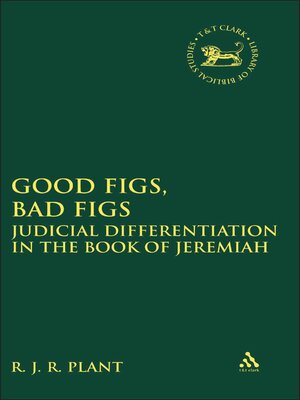Good Figs, Bad Figs
ebook ∣ Judicial Differentiation in the Book of Jeremiah · The Library of Hebrew Bible/Old Testament Studies
By R.J.R. Plant

Sign up to save your library
With an OverDrive account, you can save your favorite libraries for at-a-glance information about availability. Find out more about OverDrive accounts.
Find this title in Libby, the library reading app by OverDrive.



Search for a digital library with this title
Title found at these libraries:
| Library Name | Distance |
|---|---|
| Loading... |
Good Figs, Bad Figs begins by reviewing how the Old Testament depicts YHWH exercising judgment in Israel. Three broad categories of judicial action are identified: selective, unselective, and national. It is noted that more than one of these may be juxtaposed within the same text, and that each is a corollary of a wider theological frame of reference. The rest of the study focuses on the concept of judicial differentiation in the book of Jeremiah. Jeremiah 1 - 20 announce wrath upon all Judah, while chs. 30 - 33 prophesy restoration for the entire Diaspora. Elsewhere, however, YHWH's judicial action is more nuanced. Jer. 21 - 24 differentiates between those who stay in Jerusalem and those who surrender (21.1-10), between Israel's leaders and people (23.1-8), and between the exiles and non-exiles (24.1-10). Jeremiah 27 - 29 also distinguishes between exiled and non-exiled communities, but adds a 'people and prophets' polarity. Finally, Jer. 37 - 45 offers hope to those who surrender (38.1-3) or remain in the land (42.1-22), alongside salvation oracles for two individuals who do not conform to these conditions (39.15-18; 45.1-5). Three main conclusions are drawn. Firstly, the polarities of judgment and salvation in Jer. are more varied than has generally been appreciated. Secondly, this diversity of perspective is theologically significant; it is suggested that each polarity offers a valid though incomplete lens through which to interpret God's judicial action. Thirdly, the concepts of judicial differentiation and non-differentiation may offer a helpful framework in which to read the book of Jeremiah as a whole.







